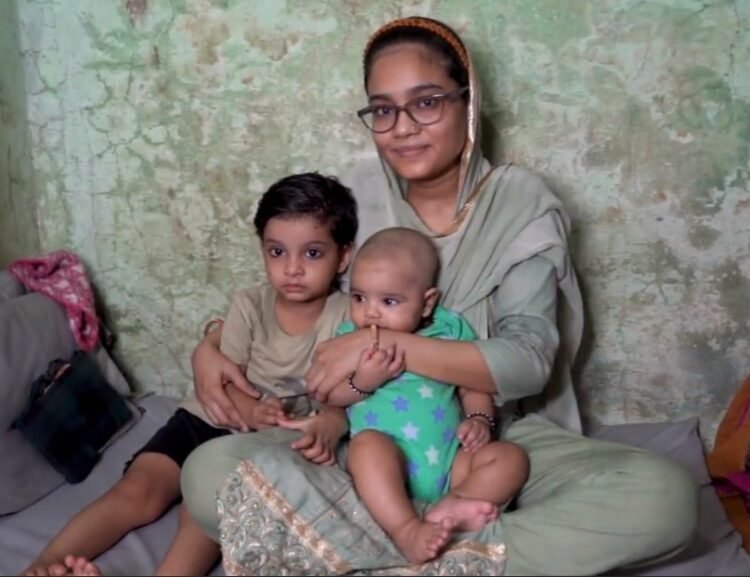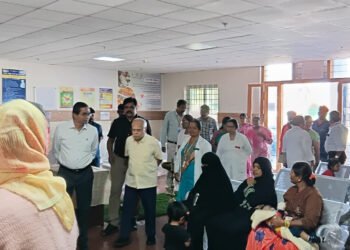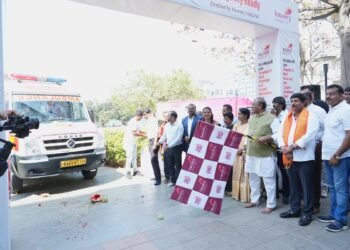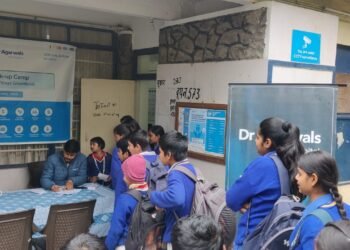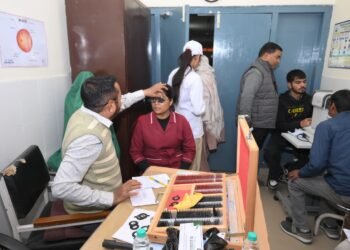Table of Contents
Survey conducted by SNEHA NGO and H T Parekh Foundation among 1000 mothers and families in urban slums
- With more than 16,000 beneficiaries of the programme between 2021-2024, it was conducted across two vulnerable settlements in Mumbai.
- Anaemia among pregnant and lactating women down from 52% to 38% in Mumbai slums
MUMBAI (India CSR): Society for Nutrition, Education and Health Action (SNEHA) along with H T Parekh Foundation recently published a report titled ‘Hybrid Intervention to Improve Maternal and Child Health and Nutrition (MCHN) in Urban Informal Settlements of Mumbai: Evaluation Report’ assessing maternal and child health outcomes in urban vulnerable settlements in Mumbai. The survey was conducted with 1000 mothers in urban poor communities across Mumbai. This survey highlights that through the efforts of the NGO and the Foundation, the health status of mothers and children has shown improvement. As per the report, anemia among pregnant and lactating women has reduced from 52% (2021) to 38% (2024).
Enhanced Child-Feeding Practices and Immunization Rates
The report highlights significant improvements in child-feeding practices among mothers residing in these vulnerable communities. These improvements encompass several key domains, including adherence to exclusive breastfeeding for the first six months, appropriate initiation of complementary feeding, and diet quality such as meeting minimum meal frequency and acceptable diet requirements for young children. Exclusive breastfeeding rates increased significantly from 59% in the initial survey (2021) to 74% in the subsequent evaluation (2024). Additionally, the proportion of mothers practicing appropriate initiation of complementary feeding has risen from 66% to 74% over the same period. Furthermore, immunization coverage for vaccine-preventable diseases, a critical component of child well-being, has shown an increase from 78% to 87% over the assessment period.
Reduction in Malnutrition Among Children in Slums
This in turn has also led to a reduction in malnutrition among slum children aged 0-5 years. As per the findings, stunting (a form of malnutrition) among these children declined from 34% in 2021 to 30% in 2024. Underweight children showed a reduction from 32% in 2021 to 29% in 2024.

Community Collaboration: Key to Success in Health Initiatives
Speaking on the survey findings, Sushma Shende, Programme Director, Maternal and Child Health, SNEHA said, “We’ve closely partnered with the government’s Integrated Child Development Services (ICDS) and Brihanmumbai Municipal Corporation (BMC) health services to address malnutrition and health issues among children in our areas. The survey has proven the impact that we along with H T Parekh Foundation have created through our efforts, in collaboration with the public services and the mothers and families in the communities where we work. We firmly believe that a healthy child is a precious gift to a mother and a critical investment in building a healthy nation. As a mother, I take pride that we could guide and help so many mothers and their children live fitter and joyful lives.”
Empowering Communities for Better Child Health
Sweety Thomas, the Chief Operating Officer of the H T Parekh Foundation, remarked that “It is often said it takes a village to raise a child. Through this project, which aimed to improve the health of our children, it was clear that an empowered and involved community can make a big difference in the health of a mother and in turn giving children a strong start in life.”
Successful Health Programme
The survey includes conducting several activities among urban poor communities in Mankhurd, Govandi, and Dharavi, including nutrition counselling and identification and referral of child malnutrition in collaboration with ICDS and health system staff.
Important Facts
Here’s a table summarizing the key facts from the survey conducted in Mumbai’s urban slums:
| Organizations Involved | SNEHA NGO and H T Parekh Foundation |
| Survey Population | 1000 mothers and families in urban slums |
| Location | Urban informal settlements of Mumbai |
| Period of Survey | 2021 – 2024 |
| Anaemia Reduction | From 52% in 2021 to 38% in 2024 among pregnant and lactating women |
| Exclusive Breastfeeding Increase | From 59% in 2021 to 74% in 2024 |
| Initiation of Complementary Feeding Increase | From 66% to 74% |
| Immunization Coverage Increase | From 78% to 87% |
| Reduction in Stunting | From 34% in 2021 to 30% in 2024 |
| Reduction in Underweight Children | From 32% in 2021 to 29% in 2024 |
| Key Collaborations | Integrated Child Development Services (ICDS), Brihanmumbai Municipal Corporation (BMC) |
| Report Title | ‘Hybrid Intervention to Improve Maternal and Child Health and Nutrition in Urban Informal Settlements of Mumbai: Evaluation Report’ |
| Total Beneficiaries | More than 16,000 between 2021-2024 |
(India CSR)

